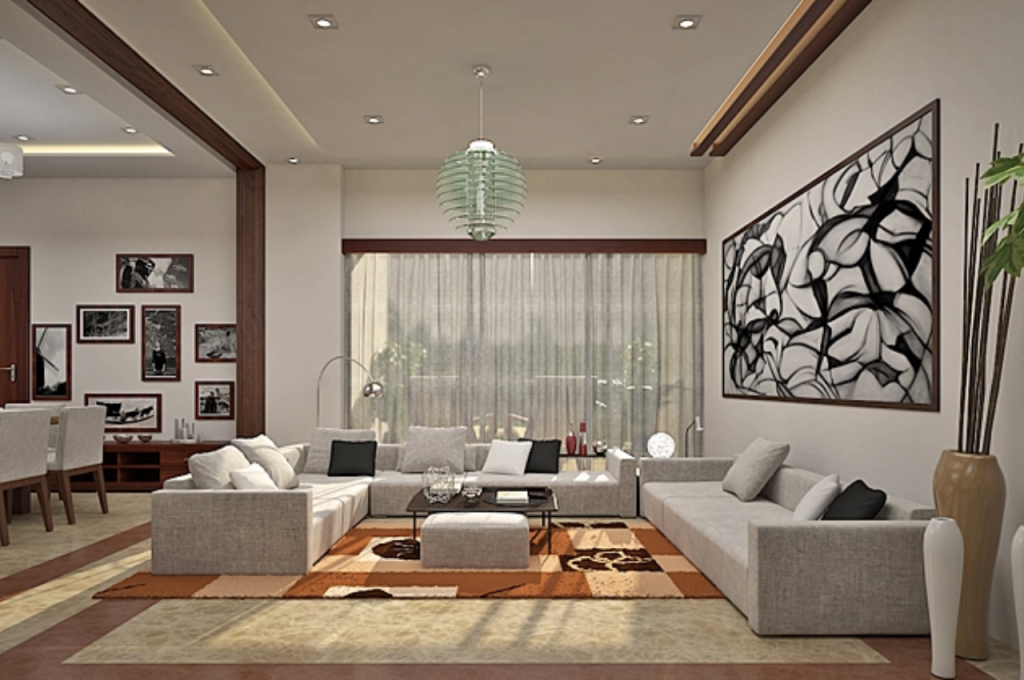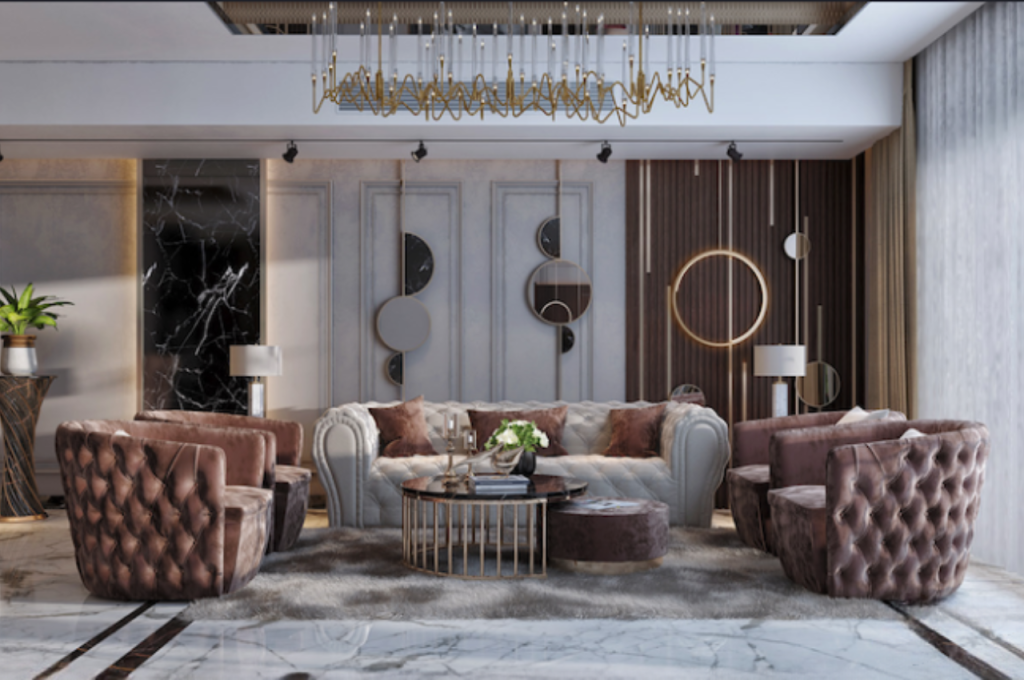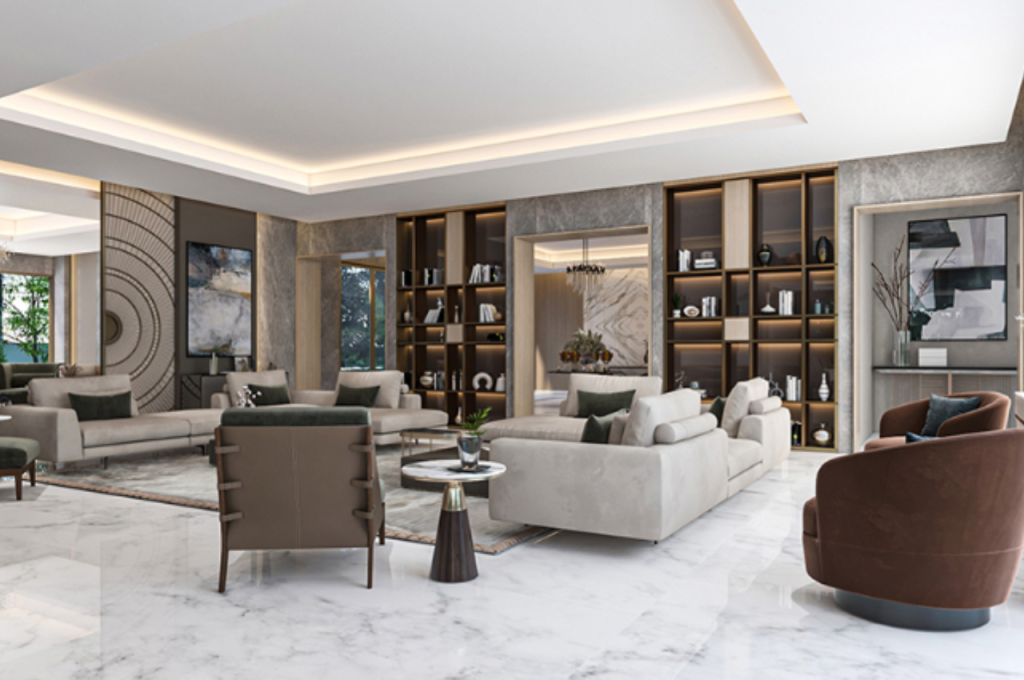Interior design can be a highly lucrative career path with numerous opportunities for growth and creativity. Interior design is a popular career choice for those who have a passion for creating beautiful spaces that reflect a client’s personality and lifestyle.
Designers work on projects ranging from small residential spaces to large commercial buildings. With the right education, experience, and creativity, interior designers can greatly enhance their earning potential and build a successful career. Besides, the industry is constantly changing, and there is always room for innovation and experimentation.
We will explore the different aspects of interior design and why it can be a successful career choice.
Qualifications Required
Qualifications Required for Interior Design is a significant aspect to consider for anyone looking to pursue this profession. Interior design is a highly creative field that requires various skills and qualifications. It is essential to have a clear understanding of these qualifications to succeed in this career.

Education and Certifications
To start a career in Interior Design, you need to obtain the required educational qualifications and certifications. Most employers prefer candidates with at least a Bachelor’s Degree in Interior Design or a related field. It is also crucial to obtain certifications from reputable organizations such as the National Council for Interior Design Qualification (NCIDQ).
NCIDQ certification is the standard for interior designers’ professional status and is considered a mark of proficiency and credibility. Achieving NCIDQ certification requires passing a rigorous exam that tests your understanding of design principles, codes, standards, and technical aspects of interior design.
Relevant Skills
To excel in the field of Interior Design, you must have certain skills that are essential to the job. Some of these skills include creativity, attention to detail, critical thinking, problem-solving, communication, and project management. In addition, computer-aided design (CAD) skills, knowledge of building codes and construction standards, and the ability to work within budget and timelines are also critical skills employers look for in Interior Design professionals.
Moreover, it’s also advantageous to develop additional expertise in specific areas of design such as residential, commercial, or hospitality. Specialization in one particular area enhances your knowledge and expertise to design creative and innovative spaces.
| Required Qualifications | Skills needed |
| Bachelor’s Degree in Interior Design | Creativity |
| NCIDQ Certification | Attention to detail |
| CAD Skills | Critical Thinking |
| Knowledge of Building Codes and Construction Standards | Problem-Solving |
| Project Management | Communication |
- A Bachelor’s Degree in Interior Design or a related field.
- NCIDQ certification from reputable organizations.
- Creativity, attention to detail, critical thinking, problem-solving, communication, and project management skills.
- CAD skills and knowledge of building codes and construction standards.
Job Opportunities
Interior design has become a highly successful career, with potential job opportunities in residential, commercial, and hospitality sectors. With a focus on creating functional and aesthetically pleasing spaces, interior design professionals can find success in industries ranging from real estate to event planning.
Interior Design is a dynamic and ever-evolving field, which offers numerous job opportunities to skilled professionals. Interior Designers are in high demand, ensuring a successful career with rewarding prospects.
Types of Employers
Interior Designers have a variety of employers to choose from. They can work as Freelancers, in Small Businesses, or join established Design Firms. Skilled Interior Designers can also work in large Corporations or Companies, which require their services for office and commercial space design.
Job Positions
There are multiple job positions available for Interior Designers. Some popular job positions include:
- Residential Interior Designer
- Commercial Interior Designer
- Architectural Interior Designer
- Lighting Designer
- Furniture Designer
- Color Consultant
- Design Project Manager
There are also opportunities to become a Design Educator or work as a Design Consultant for home improvement companies. In conclusion, Interior Design is a thriving industry with numerous job opportunities for skilled professionals. Interior Designers can choose from various employers and job positions to build a successful career in this industry.
Career Growth
Interior design is a creative and challenging field that provides endless opportunities for career growth. From entry-level positions to top-level management, interior designers can explore various career paths. One of the most attractive aspects of a career in interior design is its flexibility and potential for growth.
Experience vs Education
When it comes to career growth in interior design, experience and education play a crucial role. While a degree in interior design or a related field can provide a strong foundation, experience is equally important. Many top interior designers have built their careers through experience, gaining valuable insight and knowledge along the way. On the other hand, formal education can provide a more structured approach to learning, teaching the technical skills and design theory needed to succeed in the field. Ultimately, a combination of both education and experience can lead to the most successful career growth.
Advancement Opportunities
Interior design offers numerous advancement opportunities for those who are willing to put in the hard work and dedication. For entry-level designers, gaining experience and building a strong portfolio can lead to promotions and higher-paying positions. As designers move up in their careers, they may take on management roles such as senior designer or design director. Additionally, many designers decide to start their design firms, offering endless possibilities for entrepreneurship and success.

| Experience Advancement | Education Advancement |
| Gain experience through internships or entry-level positions in design firms. | Pursue advanced degrees in interior design or related fields. |
| Gain exposure from working on various projects and building a strong portfolio. | Take courses to improve technical skills and learn design theory. |
| Move up in the company through promotions and higher-paying positions. | Develop a strong network through industry events and trade shows. |
Overall, interior design offers a wide range of career growth opportunities for those who are passionate about the field. Whether through experience or education, designers can advance their careers by building a strong portfolio, gaining exposure to different projects, and pursuing management positions. By taking advantage of the opportunities available, interior design can be an incredibly successful and fulfilling career.
Salary Potential
Interior Design can be a highly successful career with a great salary potential. Designers who specialize in commercial and luxury residential projects can earn high incomes, while self-employed designers have the flexibility to set their rates and increase their earnings with experience and reputation.
Interior design has always been an attractive career option for creative individuals who possess an eye for detail and spatial aesthetics. The profession of interior design has the potential to provide several financial benefits, making it a lucrative career choice for many. Salary potential is one of the most crucial considerations of any profession, particularly for those pursuing interior design as a career.
Factors Affecting Salary
Various factors influence the earning potential of an interior designer. These factors include experience, qualifications, location, specialization, and the size of the company. A more experienced designer with exceptional skills is likely to earn more than a newbie. Similarly, a designer with advanced degrees or certifications in their field often earns more. Where designers live and work is another factor that influences the salaries, as those working in metropolitan areas receive higher earnings than those in rural areas. Additionally, some interior designers develop expertise in specific niches such as eco-friendly designs, which can lead to increased demand and higher salaries.
Salary Range
Interior designers’ salaries vary significantly depending on their level of expertise and experience. The starting salary for an interior designer could be around $30,000 to $40,000 annually, but it can increase to $50,000 to $80,000 or more after five to ten years of experience. The earnings can go even higher with time and success in the field, leading to many six-figure salaries. Independent interior designers often earn a commission based on the overall design budget for a project, leading to greater financial rewards.
Challenges in Interior Design Career
Interior design is a competitive and dynamic field that presents a variety of challenges. Success is often determined by creativity, versatility, and the ability to meet the needs of clients. Despite the challenges, interior design can be a rewarding and fulfilling career for those who have a passion for design and a commitment to excellence.
Interior design is a profession that requires creativity, professionalism, and above all, a passion for design. However, like most careers, it has its own set of challenges. These challenges can significantly impact the success of this industry. In this section, we will be discussing some of the challenges interior designers face in their careers.
Competition in the Industry
Competition is one of the biggest challenges interior designers face. As the industry grows, more people are getting interested in becoming interior designers, making the market increasingly crowded. This means it is harder for interior designers to stand out and get noticed. To succeed in this competitive industry, interior designers must work hard to create innovative designs that differentiate them from their competitors.
Meeting Client Expectations
Another challenge in the interior design career is meeting client expectations. Every client has a unique vision for their space, and it is the job of the interior designer to turn that vision into reality. However, it is not always easy to deliver what the client wants, especially when they have unrealistic expectations. Interior designers must work closely with their clients to understand their needs and preferences and manage their expectations. Communication is key to ensuring a successful project outcome.
Working Within A Budget
Most clients have a specific budget in mind when hiring an interior designer. One of the challenges of this career is creating designs that are both beautiful and within the client’s budget. Interior designers must work within the budget, ensuring all the necessary expenses are accounted for while still maintaining the design’s quality. To sum it up, being an interior designer is a fulfilling and exciting career. However, there are challenges to overcome, including competition in the industry, meeting client expectations, and working within a budget. Aspiring interior designers must be aware of these challenges and develop strategies to address them in their careers.
Tips for Success
Interior design can be a successful career if you have the passion, creativity, and business acumen to make it work. To succeed in this field, you need to stay on top of the latest design trends, network with industry professionals, and continuously build your portfolio and skills.
Interior design is a booming industry, and many people are looking to pursue a career in this field. As with any career, success is not guaranteed, but there are certain things you can do to increase your chances of making it in interior design. Here are some tips for success that you can use to help you achieve your goals.
Networking
Networking is essential in interior design, as it can lead to job opportunities and recommendations. Attend industry events, such as trade shows and conferences, and connect with other designers and industry professionals. Join professional organizations related to interior design, and actively participate in forums and discussions. Keep in touch with former clients and colleagues, and make use of social media platforms to showcase your work and connect with potential clients.
Building A Strong Portfolio
A strong portfolio is crucial in interior design, as it serves as a visual representation of your skills and expertise. Your portfolio should showcase a range of your best work, including both professional and personal projects. Incorporate different styles and design elements to show your versatility as a designer. Consider creating a digital portfolio that can be easily shared with potential clients or employers.
Continuing Education
The interior design industry is constantly evolving, and it is crucial to stay up-to-date with the latest trends, techniques, and technologies. Consider taking courses or workshops to further your skills and knowledge. Keep a keen eye on the latest design innovations, and be open to learning new techniques and incorporating them into your work.
Communication Skills
Strong communication skills are essential in interior design, as you will need to be able to effectively communicate with clients and other professionals. Work on your presentation skills, as you will need to be able to present your ideas and designs to clients. Practice active listening, and be able to effectively communicate your ideas and vision to clients and contractors.
Marketing and Branding
Finally, marketing and branding are crucial in interior design, as they can help you stand out in a crowded industry. Consider developing a personal brand, and using social media and other platforms to market your work. Invest in professional photography of your designs, as high-quality images can help to showcase your work and attract potential clients.

Conclusion
Overall, interior design can be a highly successful and rewarding career path for those who possess the passion and skills for it. The industry is constantly growing and evolving, and there are many opportunities available for those who are willing to put in the work.
However, success in this field requires dedication, creativity, and a willingness to adapt to change. With the right mindset and determination, aspiring interior designers can build successful and fulfilling careers in this exciting and dynamic industry.

